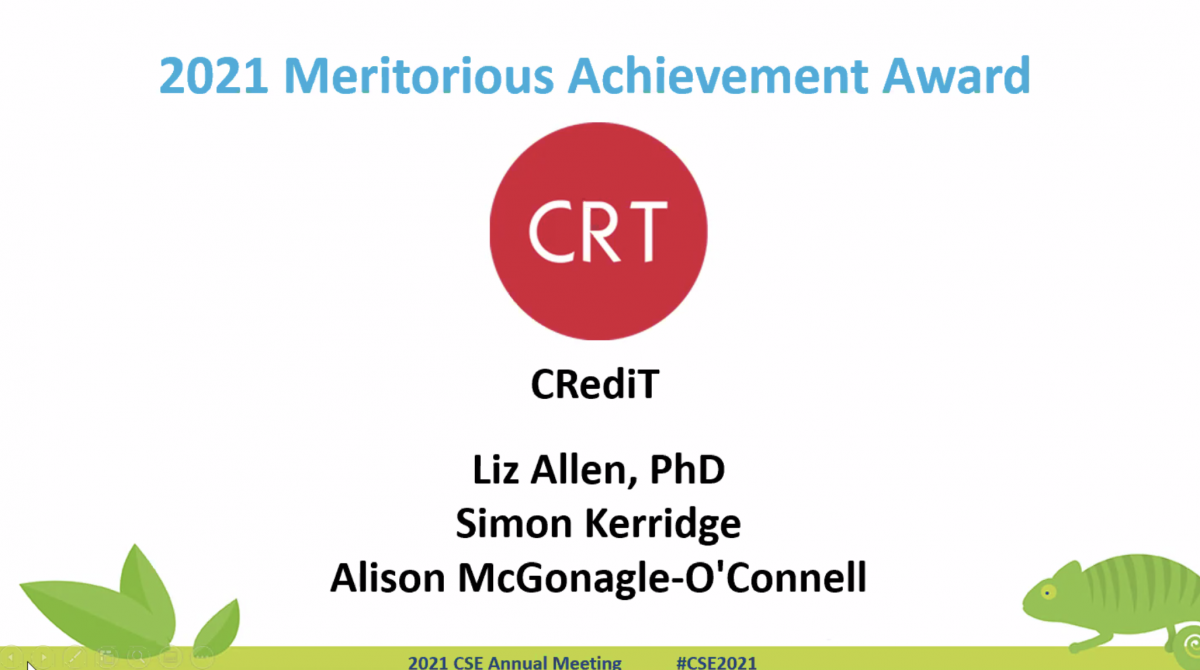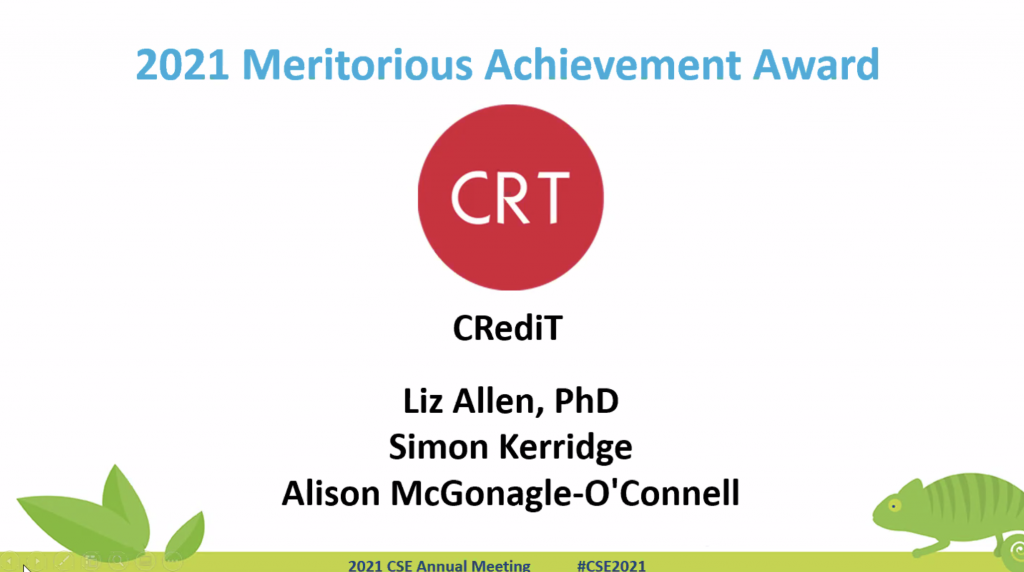Baltimore, MD – February 08, 2022 –
The National Information Standards Organization (NISO) today announces its publication of the Contributor Roles Taxonomy (CRediT) as an ANSI/NISO standard, Z39.104-2022. The taxonomy, which was originally developed in 2014, describes 14 roles that represent the typical range of contributors to scientific scholarly outputs, and that can be used to enable recognition and facilitate transparency to the myriad contributions to research in our increasingly networked scholarly ecosystem. CRediT is already in use by more than 50 organizations, a majority of which are scholarly publishers, collectively representing thousands of journals.
The process of formal standardization with the American National Standards Institute (ANSI) included the convening of a NISO Working Group for CRediT that ensured clarity in the existing taxonomy language and the implementation instructions for academics and publishers. The updated taxonomy was approved by NISO Voting Members in 2021, and ANSI has now approved it for publication as a standard. Simultaneous with the standardization process, the CRediT website at http://159.203.176.220 was launched, to provide a stable home for the identifiers and a central resource for interested parties.
NISO now plans to establish a Standing Committee to support CRediT. This Committee will continue current education and outreach efforts and work with the community to determine how to keep the taxonomy up-to-date and relevant; for example, ensuring continued roll out and adoption among publishers, and exploring how to expand its value to all research disciplinary areas. A Community of Interest Group will also be established, to enable participation of a broad and diverse range of community perspectives and interests, and to inform any future developments of the taxonomy.
“We are pleased and grateful to have had such support from the NISO community in making CRediT an ANSI/NISO standard,” commented Liz Allen, Director of Strategic Initiatives at F1000 and co-chair of the CRediT Working Group. “Voting members provided many thoughtful and valuable comments along with their votes approving the draft standard. These practical suggestions represent early feedback for the new Standing Committee to consider, and will help us steward future work to maximize CRediT’s adoption by all members of the scholarly community.”
“Many thanks and kudos to the members of the CRediT Working Group for their work to formalize the Contributor Roles Taxonomy as ANSI/NISO Z39.104-2022,” commented Todd Carpenter, Executive Director of NISO. “Improved momentum for adoption of the CRediT taxonomy will, in turn, enable more widespread, appropriate, and transparent acknowledgement of contributions. NISO looks forward to supporting the Standing Committee, once it is formed, to ensure the further development of CRediT to effectively support priorities in our community.”
The Contributor Roles Taxonomy is freely available at: https://www.niso.org/standards-committees/credit
About NISO
Based in Baltimore, MD, NISO’s mission is to build knowledge, foster discussion, and advance authoritative standards development through collaboration among the cultural, scholarly, scientific, and professional communities. To fulfill this mission, NISO engages with libraries, publishers, information aggregators, and other organizations that support learning, research, and scholarship through the creation, organization, management, and curation of knowledge. NISO works with intersecting communities of interest and across the entire lifecycle of information standards. NISO is a non-profit association accredited by the American National Standards Institute (ANSI). For more information, visit the NISO website (https://niso.org) or contact us at nisohq@niso.org.
About CRediT
CRediT (the Contributor Roles Taxonomy) is a high-level taxonomy, including 14 roles, that can be used to represent the roles typically played by contributors to scientific scholarly output. The roles describe each contributor’s specific contribution to the scholarly output. For more information, visit the CRediT website (http://159.203.176.220).
Stay in touch with what’s happening with NISO and in the broader information community.



